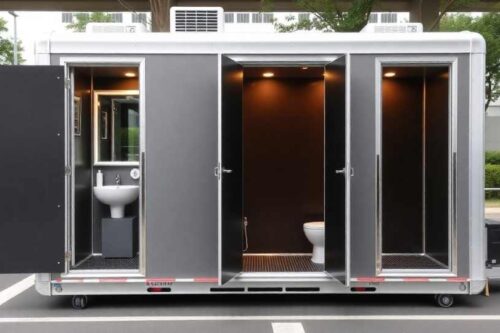Are you thinking about starting a small business, but aren’t sure how to make it successful? This guide will show you how to get started, with tips on everything from creating a business plan to marketing your new business.
- Why Small business?
- How to Start a Successful Small Business: 15 Steps to convert your Idea to Reality
- 1. Define what success means to you
- 2. Pick a business idea
- 3. Write a business plan
- 4. Choose a business structure
- 5. Register your business
- 6. Obtain the necessary licenses and permits
- 7. Find the right location
- 8. Get a business insurance
- 9. Open a business bank account
- 10. Fund your business
- 11. Build your business website
- 12. Hire employees
- 13. Develop a marketing strategy and promote your business
- 14. Keep track of your finances
- 15. Be prepared for the ups and downs
- Bottom Line
- Frequently Asked Questions (FAQs)
Why Small business?
Small businesses are the backbone of the American economy — and there are plenty of opportunities out there for those with the drive and ambition to succeed. In fact, many of the most successful businesses in the country started as small businesses.
Reasons to start a small business
There are numerous good reasons to start a small business. The small business sector is booming — and there are many opportunities for people who want to be successful. There are approximately 33.2 million small businesses in the United States. Approximately half of all small businesses in the United States are home-based. The top six states for small businesses are — California, Texas, Florida, New York, Illinois and Georgia. However, small businesses can be found in every state in the US.
The Small Business Administration (SBA) reports that small businesses make up 99.9 percent of all US businesses, and they employ roughly — 48 percent of all private sector employees in the US.
The growth rate of small businesses in the United States has been persistently advancing over the past few years, and the trend is expected to continue in the coming years. The small business growth rate in 2022 in the United States is 2.2 percent compared to the previous year (2021). The small business growth rate is anticipated to reach 4.5% by 2030. This is a significant increase from the current rate of 2.2%. However, the overall growth rate of small businesses in the United States is 12.2 percent from 2017 to 2022.
Starting a small business in the United States comes with a lot of benefits. First and foremost, you will be your own boss and have the freedom to make your own decisions. Additionally, you will have the opportunity to build something from the ground up and watch it grow into a successful enterprise.
How to Start a Successful Small Business: 15 Steps to convert your Idea to Reality
Starting your own business can be daunting, especially if you’re just getting started. It can seem like there are so many things to consider — from how you should structure your business, to what kind of opportunities will be available to support your venture, and much more. Beginning a small business can also mean starting from scratch. You might not have friends or family who can help you with the initial phases of developing a plan and finding financing. Or maybe you’ve already tried looking for assistance and didn’t find what you were looking for. Either way, it can be challenging to get started … but it doesn’t have to be.
In this article, we’ll walk you through everything you need to know to get your small business up and running.
1. Define what success means to you
Success is defined by each individual. For some, success may mean making a lot of money, while others may define success as being happy and having a good work-life balance. Whatever success means to you, there are a few key things you need to do to start a successful small business:
- Believe in yourself — if you don’t believe in your business, no one else will.
- Stay focused and passionate — it’s easy to get sidetracked when you’re running your own business, but if you stay focused on your goals, you’ll be more likely to achieve them.
- Be persistent — even when things get tough, don’t give up on your dream.
- Be flexible — things change, and you need to be able to adapt to those changes to stay successful.
- Surround yourself with positive people — negativity will only bring you down, so make sure you’re surrounding yourself with people who will support and encourage you.
2. Pick a business idea
What would be the best way to start a new successful small business? You need to find a business idea that solves a problem or meets a need. That’s right, finding a niche market with little competition is key to starting a successful small business. But you can’t just stop there. You need to consider your target market and what they need or want. The business idea should be something that is unique and has the potential to be successful.
Doing your research is essential when starting a new business. You need to ask yourself: what are your passions and interests. What are you good at? What does the market need? And, of course, research, the industry and the competition.
3. Write a business plan
There are a lot of moving parts and pieces that need to come together in order for your business to be successful. One of the most important pieces of the puzzle is your business plan. A business plan is a roadmap for your business. It abstracts your business objectives, strategies, and how you plan on reaching them. It also details your target market and how you plan on reaching them.
Creating a solid business plan is one of the most important steps you can take when forming a small business. It will help you secure funding, partners, and customers. It will also force you to think through every aspect of your business, from your marketing strategy to your financial goals. To write a business plan, you need to do your research. You need to understand your industry, your target market, and your competition. You also need to set realistic financial goals. And, most importantly, your business plan should be clear, concise, and easy to read.
Once you’ve written your business plan, don’t forget to review it regularly and update it as your business grows. Your business plan is a living document that should evolve as your business evolves. If you’re not sure where to start, there are plenty of resources available to help you write a business plan.
All of this may seem like a lot of work, but it’s important to remember that starting a new business takes time and effort. But if you have a strong business plan and the type of business you want, it can be a very rewarding experience.
4. Choose a business structure
When you start your business, one of the first decisions you’ll need to make is what type of business entity to establish. There are several different types of business entities to choose from. The most common types of business entities are sole proprietorships, partnerships, limited liability companies (LLCs), and corporations.
The type of business entity you choose will determine how your business is taxed, how much personal liability you have, and what sort of paperwork you’ll need to file. So, it’s important to choose the right business entity for your specific business needs.
Sole proprietorship
Sole proprietorships are the simplest and most common type of company entity. They’re easy to set up and don’t require any special paperwork. However, sole proprietorships offer no personal liability protection, which means that you’re personally responsible for all debts and liabilities incurred by your business.
Partnership
Partnerships are similar to sole proprietorships, but they involve two or more people. Partnerships offer some personal liability protection, but each partner is still personally responsible for his or her share of the partnership’s debts and liabilities.
Limited liability companies (LLCs)
Limited liability companies (LLCs) are a type of business entity that offers personal liability protection for its owners. LLCs are more complex than sole proprietorships and partnerships, and they require more paperwork to set up. However, LLCs offer the benefit of personal liability protection, which is why they’re a popular choice for small businesses.
Corporations
Corporations are the most complex type of business entity. They offer the strongest personal liability protection, but they also come with a lot of paperwork and regulatory requirements. Corporations are best suited for businesses that are planning to grow and expand in the future.
No matter what kind of business you are planning to start, it’s important to choose the right business entity from the outset. The type of business entity you choose will have long-term implications for your business, so it’s important to make the right decision.
5. Register your business
Registering your business is an important step in establishing your business and ensuring its success. It ensures your business is legal and helps you avoid any potential problems down the line.
There are a number of things to consider when registering your business, including the business name, the type of business, and the jurisdiction in which you’ll be registered. Choosing the right business name is a crucial first phase in registering your business. The business name you choose will be used in all of your business documents and communications, so it’s important to choose a name that is professional and represents your business well.
Once you’ve chosen a business name and business structure you’ll need to register your business with the appropriate government agency. The agency you’ll need to register with depends on the type of business you are starting and the jurisdiction in which you’ll be registered.
The most common way to register a business is to file the appropriate paperwork with the Secretary of State to establish your business as a limited liability company or corporation. You can choose to have a registered agent accept legal documents on behalf of your company. You will also need to pay a filing fee to get your certificate of registration. With your certificate of registration, you can then apply for a Tax Identification Number (TIN) and any necessary licenses.
6. Obtain the necessary licenses and permits
Before you run a small business, make sure that you obtain the necessary licenses and permits for your business. Depending on the sort of business you are starting, this could include a business license, a permit to operate, or both.
Businesses without the proper licenses and permits, the business could be subject to fines, shutdowns, or other legal penalties. Furthermore, it’s important to make sure that you’re in compliance with all local, state, and federal regulations. Failure to do so could put your business at risk.
Businesses other than sole proprietorships that don’t employ any personnel must be issued an employer identification number (EIN) by the IRS. Apply to the IRS, you will get your number within a few minutes.
Depending on the type of firm you’re starting, you may need to apply for a special license. For example, if you’re planning to open a restaurant, you’ll need a food service license. Next, you’ll need to obtain a permit from the city or county where you’ll be doing business. This permit will allow you to operate your business in that location. However, it’s important to start the process to get permits as early as possible so that you’re not delayed in getting your business up and running.
If you haven’t yet determined where to start a small business, the Small Business Administration (SBA) is a great resource. They can help you identify the licenses and permits you need, as well as provide guidance on the application process.
7. Find the right location
Every successful business starts with finding the right location. To find the right location for your business, start by considering the type of business you’re starting. Are you starting a retail store? A restaurant? A service-based business? The location you choose should be appropriate for the type of business you’re starting.
Next, consider your target market. Whom are you trying to reach with your business? Are you targeting local customers, or are you trying to reach a national or international market? The location you choose should be appropriate for the type of customers you’re trying to reach.
Finally, consider your budget. How much can you afford to spend on rent or a mortgage? How much can you afford to spend on renovations or a build-out? The location you choose should be within your budget. Once you’ve considered the type of business you’re starting, your target market, and your budget, you can start to narrow down your options and find the perfect location for your business.
8. Get a business insurance
Starting a business is a big accomplishment, but it also comes with a lot of risks. One way to help protect your business is to get business insurance. Business insurance can help financially protect your business in the event of unexpected events, like property damage, liability claims, or theft.
Having insurance can also help give your business credibility with customers and partners. There are a few different types of business insurance, and the right policy for your business will depend on your specific needs. Some common types of business insurance include property insurance, liability insurance, workers’ compensation insurance, and product liability insurance.
There are a few things you need to consider when shopping for business insurance. First, you need to decide what type of coverage you need. There are many different types of insurance policies, so it’s important to find one that meets your specific needs. Next, you need to consider the amount of coverage you need. This will depend on the size and scope of your business. If you have a small business, you may not need as much coverage as a larger business. Finally, you need to consider the cost of the policy. Business insurance policies can be expensive, so you need to make sure you can afford the policy you choose.
Getting company insurance is an important part of starting a successful small business. It can help protect your business from unexpected events and give your business credibility and peace of mind.
9. Open a business bank account
When you start a small business, one of the first things you need to do is open a business bank account. There are a few different types of business bank accounts, so it’s important to choose the one that’s right for your business. A business savings account can help you save for future expenses, while a business checking account can be used to pay for day-to-day business expenses.
A business bank account is different from a personal account in a few key ways. First, a business account will allow you to keep your personal and business finances separate. This is important for both tax and liability purposes. Second, a business account will give you access to special features and services that can help your business succeed.
There are a few things to keep in mind when opening a business bank account. First, make sure to shop around and compare options. There are a lot of different banks and credit unions out there, so you want to find one that fits your needs. Second, be prepared to open a company account with a deposit. Most banks will require a minimum deposit to open an account.
It’s important to keep track of all of your business expenses, so be sure to use your company account for all business-related expenses. Once you’ve found the right bank and opened your account, this will make it easier to stay organized and prepare your tax return each year.
10. Fund your business
Funding is one of the most prominent issues many small businesses encounter. When you’re instituting a small business, it’s important to have a solid plan in place for how you’re going to fund your venture. Whether you’re looking for a small business loan or exploring other options like a business with no money, it’s crucial to have a clear understanding of your financing options before you launch your business.
Small business loan
One popular option for financing a small business is to take out a small business loan. There is no one single best loan for every business, so it’s very wise to do your homework and evaluate your options carefully to find the right loan for you.
Taking out a loan can offer many benefits, including providing you with the funds you need to get your business off the ground and helping you to build your credit history. But you will need to repay the loan with interest.
Business with no money
Another option for financing your small business is to explore a business without money. This can be a great option if you don’t have the collateral to take out a loan or if you’re not ready to commit to a repayment plan. There are a lot of ways to start a business with no money, including starting a business on a shoestring budget, bartering, or finding investors. This is definitely a more risky option, but it is possible to do if you’re willing to put in the work.
No matter which option you choose, it’s important to have a clear understanding of your financing options before you start your business. Taking the time to plan will help you guarantee that you have the resources you need to start and run your business successfully.
11. Build your business website
Regarding launch a successful business, one of the most important things you can do is build a strong website. Your website is your online home, and it’s where potential customers and clients will go to learn more about your business. It’s important to make a good impression with a well-designed website that is easy to navigate and informative.
Fortunately, you don’t need to be a web design expert to create a great website for your business. There are many easy-to-use tools and platforms available that make building a website easy and affordable. Once you have a website up and running, you can start promoting your business online and grow your business by reaching out to your target market.
Tips to build your website for small business
Here are some tips to keep in mind as you build your small business website:
- Keep it simple.
- Make sure your content is relevant and useful.
- Use strong visuals.
- Optimize for search engines.
- Promote your website.
A website is an essential tool for any small business, so if you’re ready to run a successful to the next level, start planning your site today.
12. Hire employees
Hiring employees is an important part of starting and growing a successful small business. The right employees can make or break your business. It can be tempting to try to do everything yourself, but if you want your business to be successful, it’s important to delegate some of the work. Employees can help with everything from marketing and sales to customer service and accounting.
Things to consider when hiring employees
Hiring employees can be a big commitment, but it can also be a big help in growing your business. If you’re not sure whether or not to hire employees, here are a few things to consider:
- Do you have enough work for multiple people?
- Are you struggling to keep up with the work you have?
- Do you need help with specific tasks or skills?
- Do you want to grow your business?
If you answered yes to any of these questions, hiring employees might be the right move for you. Employees can free up your time so you can focus on the most important aspects of your business, and they can also provide the skills and knowledge you need to take your business to the next level.
If you’re ready to take the plunge and hire employees, there are a few things you should keep in mind. First, make sure you’re clear on what you’re looking for in an employee. What skills and qualities are most important to you? Second, take the time to find the right people. Don’t just hire the first person who walks through the door — take your time to find employees who you think will be a good fit for your business.
The third thing is to make sure that you pay your employees a competitive salary. If you don’t pay your employees a competitive salary, they will be less likely to stay with the company for a long period of time. You need to make sure that you provide your employees with the resources they need to be successful. If you don’t provide your employees with the resources they need, they will not be able to do their job properly and they will eventually leave the company.
Finally, remember that employees are people, too. They’re not robots, and they’re not going to be perfect. Be patient, be understanding, and be willing to work with your employees to help them succeed. If you do, you’ll find that hiring employees can be a great way to take your business to the next level.
13. Develop a marketing strategy and promote your business
Having your own business is an amazing feeling. But before you can start reaping the rewards, you need to make sure you have a solid marketing strategy in place. Developing a marketing strategy is essential for any business, but it’s especially important for small businesses. Why? Because a well-executed marketing strategy can help a small business punch above its weight and compete with larger businesses.
There are a lot of moving parts to a successful marketing strategy, but there are three essential elements that you need to get right:
1. Identify your target market
2. Develop a unique selling proposition
3. Promote your business
Let’s take a closer look at each of these elements.
Identify your target market
The first step in any marketing strategy is to identify your target market. Who are your ideal customers? What do they like? What do they need? What are their pain points?
The better you understand your target market, the easier it will be to develop a marketing strategy that resonates with them.
Develop a unique selling proposition
Once you know who your target market is, you need to develop a unique selling proposition (USP). This is what sets your business apart from the competition.
Think about what makes your business special. Do you offer something unique that your customers can’t find anywhere else? Do you have a better price point? Are you faster or more efficient than your competitors?
Your USP is what will make your target market choose you over your competitors.
Promote your business
The final piece of the puzzle is promoting your business. This is where you need to get creative and think about the best ways to reach your target market. There are a lot of different marketing channels you can use, but some of the most effective for small businesses are:
- Social media
- Content marketing
- Email marketing
- Pay-per-click advertising
The key is to experiment and find the channels that work best for your business.
14. Keep track of your finances
As a small business owner, it’s important to keep track of your finances and understand your business accounting. This will help you make informed decisions about your business, keep your business running smoothly, and avoid any financial pitfalls.
There are a few key things to keep in mind when tracking your finances. First, keep accurate records of all your income and expenses. This will help you identify any areas where you may be overspending or not generating enough revenue. Second, create a budget and stick to it. This will help you allocate your resources efficiently and keep your spending in check.
Last but not least, don’t forget to stay organized. Keep all your financial records in one place and make sure you update them regularly. This will help you keep track of your progress and make it easier to spot any potential problems.
Here are some tips on how to do just that:
- Keep your business accounting up-to-date. This means having a system in place to track your income and expenses. This can be as simple as using a spreadsheet or an accounting software program.
- Review your financial statement regularly. This will help you identify any areas where you may need to make changes in your spending or saving habits.
- Make a budget for your business. This will help you keep track of your spending and ensure that you are not overspending.
- Invest in a good business credit card. This will help you build up your credit score and get access to financing in the future.
- Seek professional advice when needed. If you are unsure about anything related to your finances, it’s always best to seek professional advice. This can help you avoid making any mistakes that could cost you in the long run.
By following these simple tips, you can ensure that your business stays on track financially. This will give you the peace of mind and confidence you need to focus on growing your business and achieving your goals.
15. Be prepared for the ups and downs
As a small business owner, you are bound to face ups and downs. It is important to be prepared for these tough times and not get too discouraged. Remember, a successful business is one that can overcome these challenges and come out stronger on the other side.
There are a few things you can do to increase your chances of success. First, make sure you have a well-thought-out business plan. This will help you focus on your goals and stay on track. Second, surround yourself with a supportive team of family and friends. These people will be there to help you through the tough times. Finally, don’t be afraid to ask for help when you need it. There are plenty of resources available to small business owners.
If you follow these tips, you will be on your way to starting a successful small business. Just remember to stay focused and stay positive, even when things get tough.
Bottom Line
Starting a small business is a big undertaking, but it’s worth it if you’re prepared to put in the hard work. If you have a clear vision, focus on your niche, and build a strong team, you’ll be well on your way to success.
Frequently Asked Questions (FAQs)
What are the 5 important tips for starting a business?
The five most important tips for starting a business are: 1) Find a need and fill it. 2) Write a business plan; 3) Find the right location. 4) price your products or services; and 5) Promote your business.
How to start a small business at home?
There is no one answer to this question as it depends on the type of small business you want to start. However, some tips on how to get started include: doing your research, planning and preparing your business, finding the right location, and making sure you have the necessary licenses and permits. Once you have all of that in order, you can start working on your business plan and making your dream of owning a small business a reality.
What kind of small business is most profitable?
There is no easy answer when it comes to the most profitable small business. However, many experts agree that businesses in the service industry are often the most successful. This is because they require less overhead and tend to be more recession-proof than other types of businesses. Additionally, businesses that cater to a niche market are often more profitable than those that serve a general audience.
What business should I start as a beginner?
This is a difficult question to answer without knowing more about your specific skills and interests. However, some businesses that might be suitable for beginners include freelance writing, web design, and pet sitting. All of these businesses can be started with little to no upfront investment, and can be run from home.
What is the cheapest most profitable business to start?
There is no definitive answer to this question as it depends on many factors, including the location, the market, and the business model. However, some businesses that are typically cheap to start and profitable include food trucks, online stores, and service-based businesses. Some general tips for starting a cheap and profitable business include finding a niche market, keeping costs low, and providing value to customers.
What are 10 startup tips for a new business?
The 10 startup tips for a new business are: 1) Have a clear and concise business plan; 2) Research your industry and target market; 3) Build a strong and experienced team; 4) Create a marketing strategy that will get you noticed; 5) Have a realistic financial plan in place; 6) Don’t be afraid to ask for help; 7) Be prepared to work hard; 8) Be flexible and adaptable; 9) Be persistent and never give up; 10) Believe in yourself and your business.
How can I start a small business with no money?
One option for starting a small business with no money is to look for business opportunities that require little to no start-up capital. One way is to start a service-based business. This could include things like being a virtual assistant, pet sitting, or housekeeping.
Another option is to start a business that can be run from home with little to no overhead costs. Additionally, you could look for business partners or investors who are willing to provide capital in exchange for a percentage of ownership in the company.
What kind of small business is most profitable?
The three most profitable small businesses are 1) tech services, 2) health services, and 3) businesses that cater to seniors. These businesses tend to be the most profitable because they either have high demand or are in industries with high barriers to entry.
3 things that make a business successful?
There are many factors that can contribute to the success of a business, but some of the most important ones are having a great product or service, building a strong brand, and creating a loyal customer base.












Leave a Reply